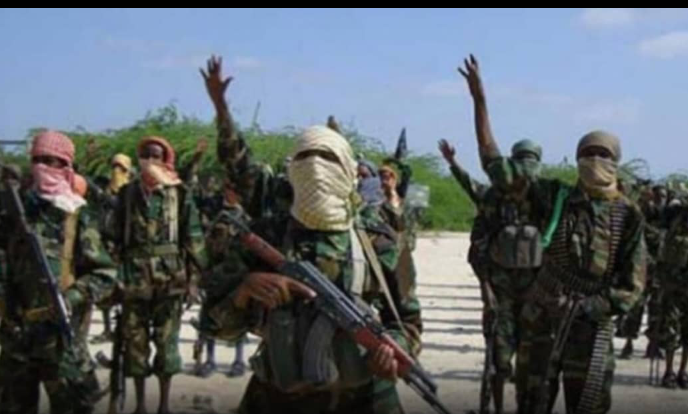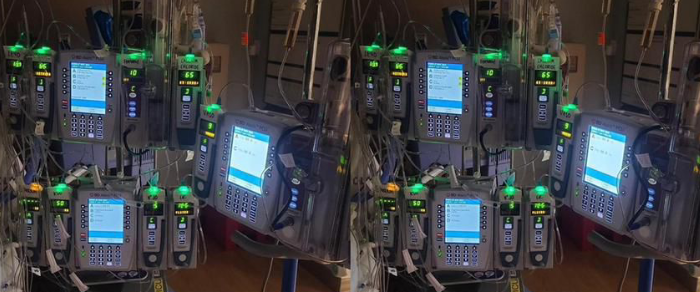
TERROR RETURNS AT DUSK: Pregnant Woman, Children Among 11 Abducted as Bandits Unleash Horror on Kwara Community

Panic swept through Isapa community in the Ekiti Local Government Area of Kwara State on Monday evening as armed bandits stormed the sleepy town in a violent and coordinated attack, abducting a pregnant woman, several children, two nursing mothers, and others in yet another brutal assault that has left residents gripped with fear. The raid, which occurred at about 6pm on November 24, 2025, marks the latest in a string of increasingly daring attacks that have ravaged communities in the region.
Located just a short distance from Eruku—a community still reeling from a recent deadly invasion—Isapa once again found itself at the mercy of heavily armed terrorists who reportedly moved in large numbers, estimated between 20 and 30, while herding cattle and firing shots indiscriminately. Witnesses describe the scene as chaotic and terrifying, with residents scampering for safety as the invaders advanced through the town, leaving destruction in their wake.
According to SaharaReporters, the assailants struck swiftly, firing rounds of ammunition at random and forcing families to flee in panic. In the midst of the shooting, an elderly woman was hit by a stray bullet, further heightening the wave of panic that engulfed the community. Houses, walls, and doors were shattered with bullet holes, and spent AK-47 shells littered the ground by the time the attackers retreated.
A community leader who confirmed the incident said that 11 people were kidnapped, seven of whom belong to the same family. Among the abducted are vulnerable individuals, including a pregnant woman, two nursing mothers, and several minors—an alarming indicator of the bandits’ increasing boldness and lack of restraint. The victims were identified as Talatu Kabiru, Magaji, Kande, Hadiza, Mariam, Saima, Habibat (a housewife), Fatima Yusufu (a housewife), Sarah Sunday (the pregnant woman), Lami Fidelis (a nursing mother), and Haja Na Allah.
For residents of Isapa, the attack felt like a nightmare revisited. Just days earlier, the neighbouring community of Eruku had suffered a devastating blow when terrorists invaded a branch of the Christ Apostolic Church (CAC) during a meeting, killing three worshippers and abducting several others, including the pastor. The attackers reportedly walked into the church calmly, offering no indication of hostility before opening fire within seconds.
“One minute they walked in, the next minute they were shooting,” a witness told SaharaReporters. “Three people were killed on the spot. They forced others out at gunpoint and marched them into the bush. We don’t yet know how many were taken.”
In the aftermath of the Isapa attack, the sense of dread hanging over the community is palpable. Residents recount the moments of horror when the gunmen moved from one section of the town to another, their gunfire echoing through the streets. Families hid behind doors and under furniture as bullets pierced walls and smashed through windows. Those who managed to escape did so under extreme terror, fleeing through backyards and farmlands as the invaders advanced.
For many, the emotional toll is as heavy as the physical destruction left behind. Parents are struggling to console their children, who still tremble at the sound of even distant noises. Community elders lament what they describe as a complete breakdown of security, noting that the frequency and intensity of attacks have risen sharply in recent months.
What is particularly troubling for locals is the pattern of movement taken by the attackers. They reportedly fled using bush paths that connect Isapa to neighbouring communities, the same routes used during the attack in Eruku. These interconnected escape routes have become dangerous corridors for criminal elements, allowing them to slip through loosely monitored areas with ease and vanish before security forces can respond.
Calls for improved security have grown louder across the region, with residents pleading for government intervention to stop the tide of terror. Many say the communities have been left to fend for themselves despite repeated appeals for help. Farmers no longer feel safe returning to their fields, traders close their stalls earlier than usual, and families now go to bed with fear that the attackers may strike again without warning.
As Isapa tries to piece itself together after the horrifying events of Monday evening, the mood remains grim and uncertain. Families of the abducted victims now wait anxiously, clinging to hope that their loved ones will be rescued unharmed. The fear of the unknown haunts their days and keeps them awake at night, as negotiations, rescue efforts, or any official response have yet to be confirmed.
The recent attacks have also sparked renewed debate about the growing threats of banditry and terrorism in parts of northern and central Nigeria, where communities continue to suffer kidnappings, killings, and displacement. Security analysts warn that unless urgent and coordinated measures are taken, more communities may come under siege, and the humanitarian consequences could escalate dramatically.
For residents of Isapa and Eruku, the sense of vulnerability is overwhelming. The same paths used for trade, farming, and daily activities have become gateways for terror. Every unfamiliar sound now triggers fresh anxiety, and the once-peaceful routines of daily life have been replaced with caution and fear.
As the nation awaits updates on rescue efforts and government response, many Nigerians are left asking the same question: how many more attacks will it take before lasting solutions are implemented? For the families of the abducted, time is moving painfully slow, each hour stretching into agony as they pray for the safe return of their loved ones.
For now, Isapa remains a community on edge, living in the shadow of yet another violent invasion—one that has left scars not only on its buildings and farmlands but on the hearts of its people, who now fear that nowhere is truly safe anymore.


